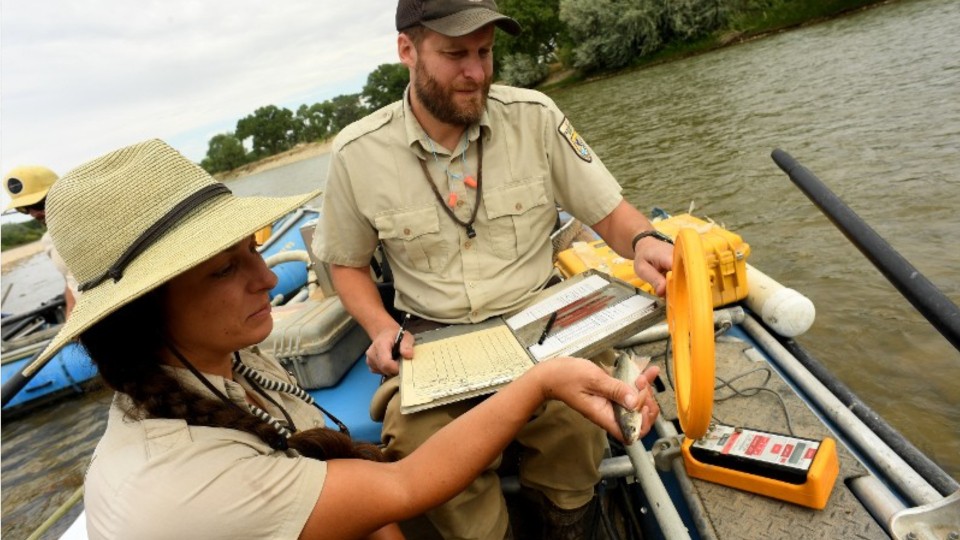Zoologists & Wildlife Biologists
Conservation Biologist, Fish and Wildlife Biologist, Fisheries Biologist, Wildlife Biologist
What they do:
Study the origins, behavior, diseases, genetics, and life processes of animals and wildlife. May specialize in wildlife research and management. May collect and analyze biological data to determine the environmental effects of present and potential use of land and water habitats.
On the job, you would:
- Develop, or make recommendations on, management systems and plans for wildlife populations and habitat, consulting with stakeholders and the public at large to explore options.
- Inventory or estimate plant and wildlife populations.
- Inform and respond to public regarding wildlife and conservation issues, such as plant identification, hunting ordinances, and nuisance wildlife.
Knowledge
Math and Science
- biology
- arithmetic, algebra, geometry, calculus, or statistics
Arts and Humanities
- English language
Business
- customer service
- management
Safety and Government
- law and government
Skills
Basic Skills
- listening to others, not interrupting, and asking good questions
- reading work related information
Problem Solving
- noticing a problem and figuring out the best way to solve it
People and Technology Systems
- thinking about the pros and cons of different options and picking the best one
- figuring out how a system should work and how changes in the future will affect it
Abilities
Verbal
- communicate by speaking
- communicate by writing
Ideas and Logic
- make general rules or come up with answers from lots of detailed information
- use rules to solve problems
Attention
- pay attention to something without being distracted
- do two or more things at the same time
Math
- add, subtract, multiply, or divide
Personality
People interested in this work like activities that include ideas, thinking, and figuring things out.
They do well at jobs that need:
- Innovation
- Intellectual Curiosity
- Integrity
- Attention to Detail
- Dependability
- Achievement Orientation
Technology
You might use software like this on the job:
Geographic information system
- ESRI ArcGIS software
- Geographic information system GIS software
Presentation software
- Microsoft PowerPoint
Analytical or scientific software
- SAS
- Statistical software
Education
Education: (rated 4 of 5)
bachelor's degree or
master's degree
usually needed
master's degree
usually needed
Job Outlook
Below Average
New job opportunities are less likely in the future.
Explore More
- Biologists
- Conservation Scientists
- Environmental Restoration Planners
- Fish & Game Wardens
- Range Managers
You might like a career in one of these industries:
See more details at O*NET OnLine about Zoologists & Wildlife Biologists.






